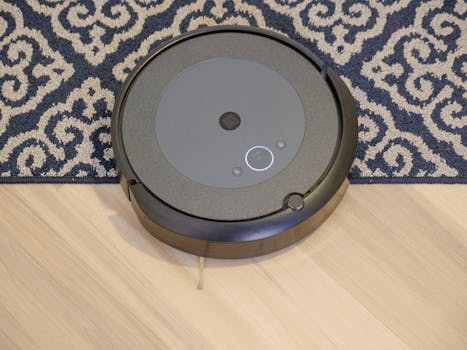
Smart Homes and Smart Living: The Technological Transformation of European Homes by 2025
Introduction to Smart Homes and Smart Living
Smart Homes and Smart Living: The Technological Transformation of European Homes by 2025 is an innovative concept that is changing the way people live, work, and interact with their surroundings. With the integration of advanced technologies such as artificial intelligence, Internet of Things (IoT), and automation, European homes are expected to become more convenient, sustainable, and connected. In this article, we will explore the concept of smart homes and smart living, its benefits, and the technological transformation of European homes by 2025.
Benefits of Smart Homes and Smart Living
The benefits of smart homes and smart living are numerous. Some of the most significant advantages include:
- Convenience: Smart homes and smart living provide residents with a high level of convenience, allowing them to control various aspects of their home, such as lighting, temperature, and security, remotely.
- Sustainability: Smart homes and smart living promote sustainability by optimizing energy consumption, reducing waste, and using renewable energy sources.
- Improved Safety and Security: Smart homes and smart living provide advanced safety and security features, such as motion detectors, surveillance cameras, and emergency response systems.
- Increased Property Value: Smart homes and smart living can increase property value, making them more attractive to potential buyers and renters.
Technological Transformation of European Homes by 2025
By 2025, European homes are expected to undergo a significant technological transformation, incorporating advanced technologies such as:
- Artificial Intelligence (AI): AI will play a crucial role in smart homes and smart living, enabling residents to control and interact with their home using voice commands, gestures, and other forms of input.
- Internet of Things (IoT): IoT will connect various devices and appliances in the home, allowing them to communicate and interact with each other seamlessly.
- Automation: Automation will enable residents to automate various tasks, such as adjusting lighting, temperature, and security settings, to create a more convenient and sustainable living environment.
Conclusion
In conclusion, the concept of smart homes and smart living is revolutionizing the way Europeans live, with a focus on convenience, sustainability, and innovation. By 2025, European homes are expected to undergo a significant technological transformation, incorporating advanced technologies such as AI, IoT, and automation. As the demand for smart homes and smart living continues to grow, it is essential for homeowners, builders, and policymakers to work together to create a sustainable and connected living environment for the future.
Future of Smart Homes and Smart Living
The future of smart homes and smart living is exciting and promising. With the integration of emerging technologies such as 5G, blockchain, and quantum computing, smart homes and smart living are expected to become even more advanced and sophisticated. Some of the potential applications of these technologies include:
- Enhanced Security: 5G and blockchain will provide enhanced security features, such as secure data transmission and storage, to protect residents’ personal data and prevent cyber attacks.
- Increased Efficiency: Quantum computing will enable smart homes and smart living to optimize energy consumption, reduce waste, and improve overall efficiency.
- Improved Healthcare: Smart homes and smart living will integrate with healthcare systems, enabling residents to receive personalized healthcare services, such as remote monitoring and telemedicine.
Challenges and Limitations
While the concept of smart homes and smart living is promising, there are several challenges and limitations that need to be addressed. Some of the key challenges include:
- Cost: The cost of implementing smart home technologies can be prohibitively expensive, making it inaccessible to many homeowners.
- Complexity: Smart home technologies can be complex and difficult to use, requiring significant technical expertise to install and maintain.
- Security: Smart homes and smart living are vulnerable to cyber attacks and data breaches, which can compromise residents’ personal data and security.
Conclusion
In conclusion, the concept of smart homes and smart living is revolutionizing the way Europeans live, with a focus on convenience, sustainability, and innovation. While there are several challenges and limitations that need to be addressed, the benefits of smart homes and smart living make it an essential aspect of modern living. As the demand for smart homes and smart living continues to grow, it is essential for homeowners, builders, and policymakers to work together to create a sustainable and connected living environment for the future.
Recommendations
Based on the analysis, the following recommendations are made:
- Invest in Smart Home Technologies: Homeowners and builders should invest in smart home technologies, such as AI, IoT, and automation, to create a more convenient and sustainable living environment.
- Address Security Concerns: Policymakers and industry leaders should address security concerns, such as data breaches and cyber attacks, to ensure the safety and security of residents’ personal data.
- Promote Education and Awareness: Educating homeowners and residents about the benefits and challenges of smart homes and smart living is essential to promote adoption and address concerns.
Final Thoughts
In final thoughts, the concept of smart homes and smart living is a revolutionary concept that is changing the way Europeans live, with a focus on convenience, sustainability, and innovation. As the demand for smart homes and smart living continues to grow, it is essential for homeowners, builders, and policymakers to work together to create a sustainable and connected living environment for the future. With the integration of emerging technologies, such as 5G, blockchain, and quantum computing, smart homes and smart living are expected to become even more advanced and sophisticated, providing residents with a better quality of life and a more sustainable future.



